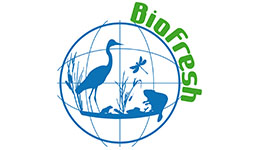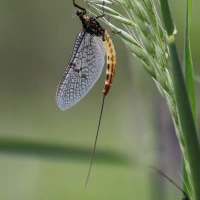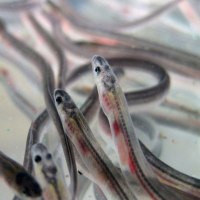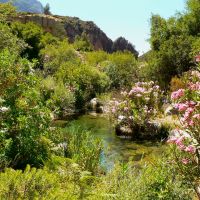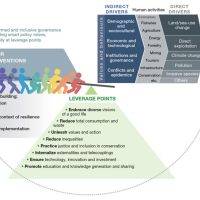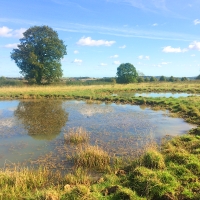Meet the MARS team: Rafaela Schinegger
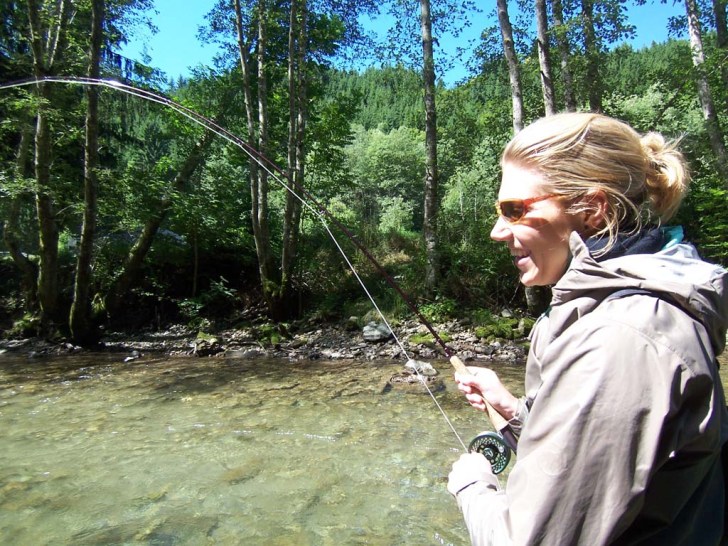
Rafaela is a keen fly fisher
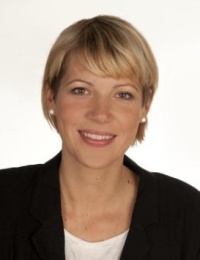 Rafaela Schinegger is a scientist, lecturer and project co-ordinator at the Institute of Hydrobiology and Aquatic Ecosystem Management at the University of Natural Resources and Life Sciences in Vienna, Austria (BOKU).
Rafaela Schinegger is a scientist, lecturer and project co-ordinator at the Institute of Hydrobiology and Aquatic Ecosystem Management at the University of Natural Resources and Life Sciences in Vienna, Austria (BOKU).
Rafaela’s research examines how fish populations respond to different ecological stresses at a variety of different geographical scales. Her doctoral thesis work focused on “Specific and multiple human pressures and their impacts on fish assemblages in European running waters“, a theme which has been continued in her subsequent research. Rafaela coordinates research projects on fish ecology, sustainable hydropower use and ecosystem services in the Alps and across Europe.
You can find out more about Rafaela’s work through her BOKU staff page, publications page and by following her on Twitter.
1. What is your focus of your work in MARS, and why?
My work in MARS focuses on various freshwater issues across different spatial scales. First of all, I support and coordinate Task 3.2 “Ongoing River Experiments and their Related Results”. I also work on Task 4.3 “Case Study Basins”, where I lead analyses on the effect of multiple human pressures on aquatic biodiversity across the Drava basin (a tributary of the Danube).
In addition, I contribute to Task 5.4 “Multiple Stressors on Fish across Europe”, the results of which will provide ecological indicators for specific pressures and pressure combinations. Finally, the results of this research at various spatial scales will feed into Task 8.2 “Guidance to River Basin Managers”, which I co-ordinate.
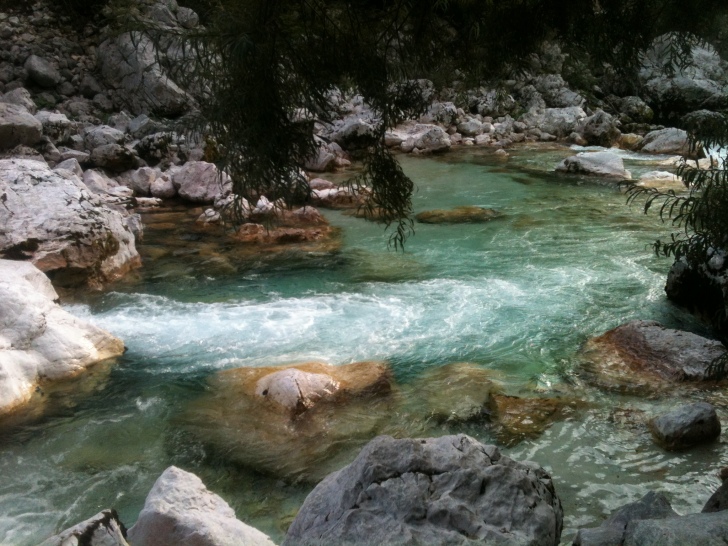
The Soca River in western Slovenia
2. Why is your work important?
Overall, it helps support and strengthen the implementation of the Water Framework Directive, in terms of understanding the effect of multiple human pressures on freshwaters and the potential value of ecosystem services. More specifically, we hope to provide methods on how to link freshwater ecological status to the impact of different pressures.
In addition, we hope to be able to estimate how much each pressure (e.g. pollution) needs to be reduced in order for freshwater ecosystems to reach a good ecological status. This can be achieved when we understand how to scale our results up and down – from experiments to catchments to the European scale and back again.
Finally, it is important to support the “science-policy interface” by making MARS’s scientific results accessible, easy to understand and “digestible” for water managers and other relevant stakeholders and decision makers.
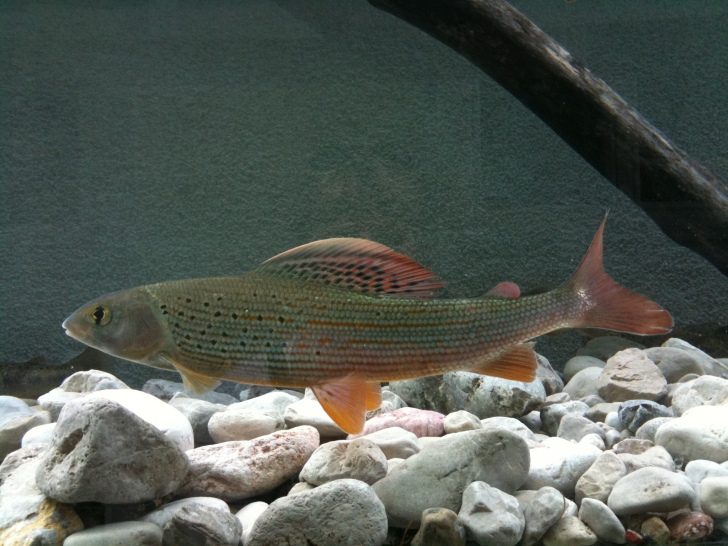
The European Grayling, a fish important to Rafaela’s research
3. What are the key challenges for freshwater management in Europe?
We are facing two key challenges, which MARS can help provide solutions to.
First, how to untangle the multiple pressures acting on Europe’s aquatic ecosystems, and how to translate this work into firm policy measures? These questions are still unclear to me and we might need to develop more sensitive assessment methods. However, if these questions can be answered, it will be a good basis to give guidance on future monitoring and ecological understanding of our freshwaters.
Second, how to integrate the concept of ecosystem services into freshwater management? The concept makes sense to me, as long as the principles of the Water Framework Directive are respected. Ecosystem services should be a valuable concept in the future for prioritisation of measures to reduce the pressures on freshwaters.
However, we have to be very careful when incorporating this concept into WFD work, for example in relation to the programme of measures, in order to ensure that the concepts are not conflicting or overruling. The economic valuation of ecosystem services will be a very challenging exercise for freshwater science and management in Europe.
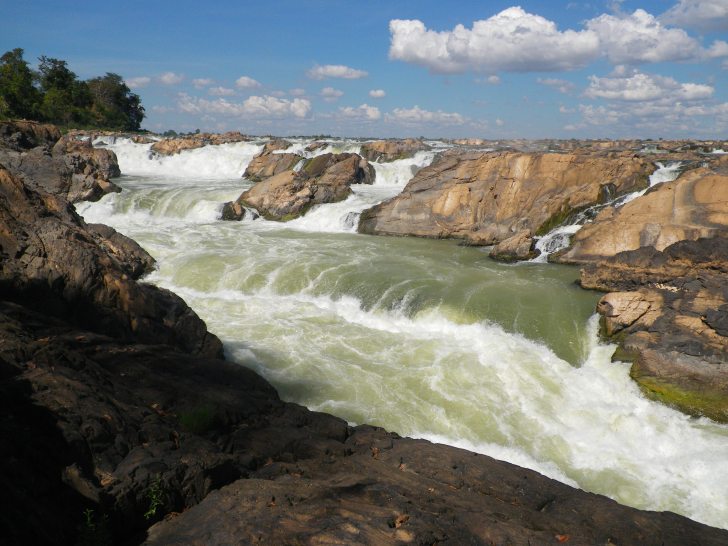
Khone Falls on the Mekong River
4. Tell us about a memorable experience in your career.
I have two memorable experiences from the last year in mind.
First, I contributed to an EFI+ project called Improvement and Spatial Extension of the European Fish Index. This was the first time I’ve contributed to a major project of this type, and it was very challenging to harmonise and analyse sampling data provided by 15 different institutions at the European scale. However, it was very inspiring and fruitful to work with a great team of European researchers, and I’m very thankful to all people involved, as I learnt a lot from them.
Second, in 2011 I remember sitting on the shore of the Mekong river for the first time and experiencing the Khone Falls at the border of Lao PDR and Cambodia – a stunning moment that I want to share with the blog readers in the picture above.
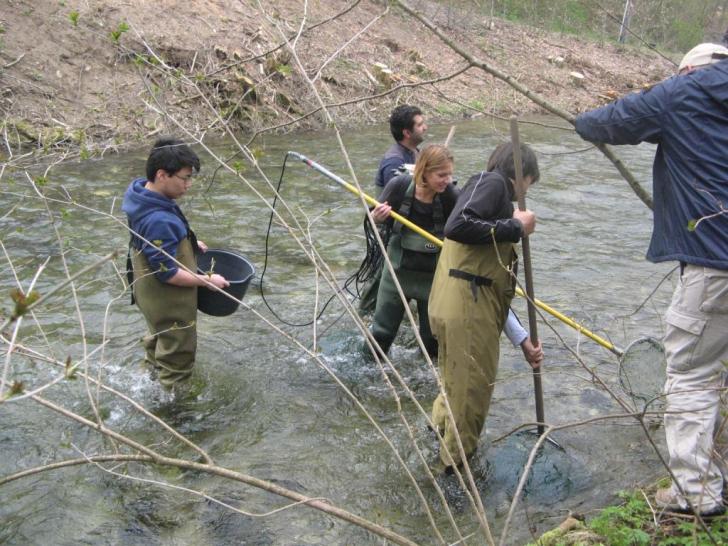
Rafaela teaching on an international masters fieldwork course
5. What inspired you to become a scientist?
I grew up in a remote place in Southern Austria and was out in the forests and yards every day, which certainly contributed to my great interest in nature and landscape. Thanks to very engaged teachers at my high school I became very much interested in natural sciences, which began my passion for biology, geography and chemistry. Finally, studying landscape planning with a focus on hydrobiology at BOKU inspired me a lot and opened the door to my scientific work in fish ecology and freshwater management.
6. What are your plans and ambitions for your future scientific work?
My ambition is to contribute to a “superior goal” – to help societies sustainably care for nature and our global biodiversity. To do this, we need to fill a critical gap in our understanding of the health of our freshwater systems to ultimately improve their management and conservation.
Education, knowledge sharing and capacity building in terms of a broader understanding of the natural world are all tremendously important. In this regard, continuing my teaching on BOKU’s international masters programme “Applied Limnology” and participating in European and global projects as MARS are ambitions for me. I’m very curious about what the future will bring.


